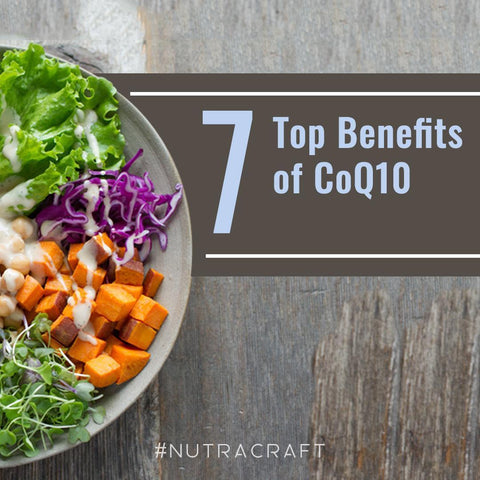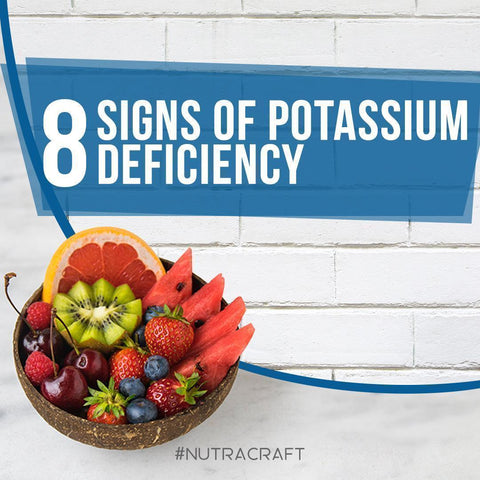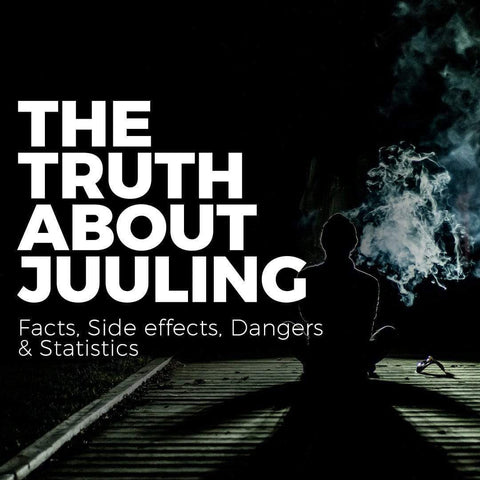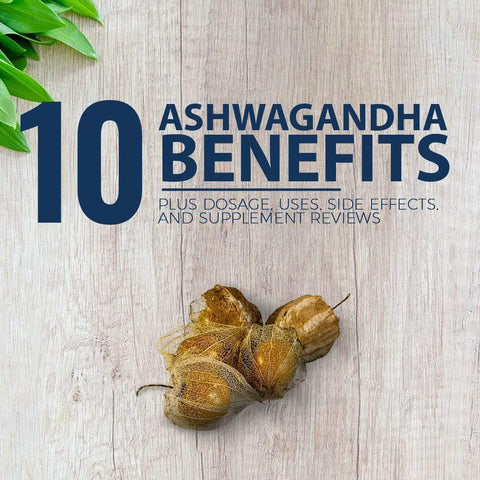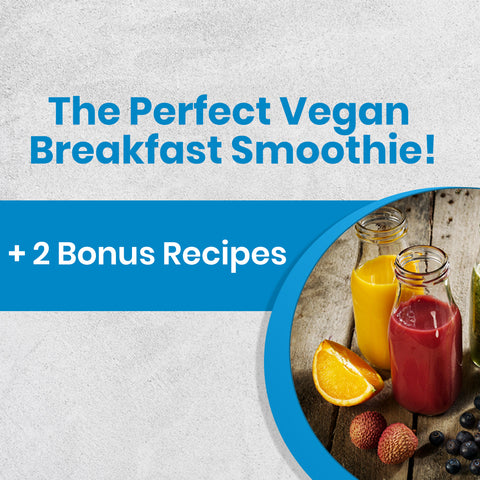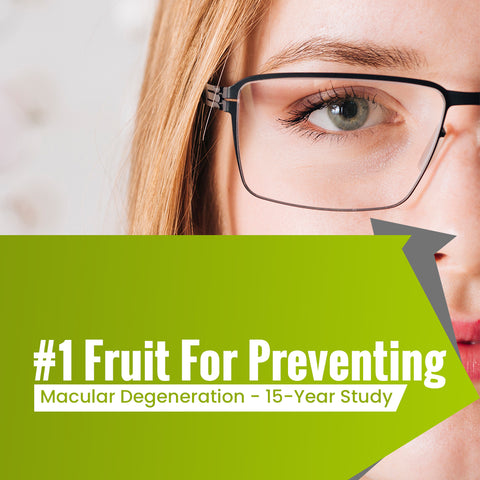
There’s a lot of misleading or harmful nutritional information out there.
The internet has made valuable information easily available to everyone. The downside of the internet is that misinformation is also easily available.
But it’s not just lay people on the internet who can spread stupid myths. The news media does it as well. When it comes to stories about nutrition, news articles sensationalize, mislead, and simplify complex nutritional issues. Many times, the reader comes away with a wrong impression and might make unhealthy dietary decisions.
Just be sure to question and investigate extreme claims when you read or hear them. Here are a few:
1. Supplements Are of No Value

Certainly, it’s true that not all compounds you put into your body will be helpful. But the media has repeatedly made the incredibly clumsy generalization that all supplements offer no value to your health.
This is perhaps the most patently false myth about nutrition.
To claim that all of the hundreds and hundreds of nutritional compounds on the market, and all the different forms of these compounds, offer nothing therapeutic to your body shows a profound ignorance of physiology and research on supplements.
Thousands of studies have shown therapeutic effects of various supplements in humans, animals, and test tubes. Yes, these are effects that can be objectively measured, not just subjective improvements in health. Here’s a link to just one example of a supplement, Coenzyme Q10, that has beneficial effects on human health.
The media has made this incredible generalization about supplements because of negative studies on nutrients that are widely known to not be very useful, such as high doses of fat-soluble vitamins.
There’s a world of supplements out there, some made by high quality companies and some made by cheaters who cheapen their products. But be sure that just about anything you put in your body affects the structure and function of your cells, and sometimes very positively!
2. Carbs Are Bad

Paleo diet advocates have done great work warning people about the dramatic dangers of processed sugar and processed carbs.
Sweet processed foods and processed starches like white bread, pasta, and pizza cause your blood sugar to spike, which has known negative effects on your health and causes damage to your body.
But sugar in itself is not a demonic force. After all, vegetables and fruits (the healthiest foods of all) contain sugars like glucose, fructose, and sucrose. But these foods also contain loads of antioxidants, vitamins, and minerals that empower and protect your body.
Don’t throw the baby out with the bathwater. You need the colorful antioxidants found in sugar-containing foods like berries, other fruits, and vegetables. These antioxidants benefit your health in a multitude of ways, and antioxidants like vitamin C and polyphenols in fruits and veggies can balance blood sugar and keep it from spiking 1,2.
Whole grains and beans contain antioxidants and other valuable nutrients, as well as carbs. Incredibly, researchers have found that whole grains and beans reduce blood sugar spikes from subsequent meals you eat 3. For instance, if you eat them with lunch, your blood sugar spike from dinner will be reduced 3!
Remember that food combining affects how carbs are absorbed. For instance, when almonds are added to bread, the blood sugar increase that briefly occurs from the bread is substantially lowered 4.
Exclusive Bonus! Download the FREE report ‘5 Top Supplement for Optimum Health’ by clicking here.
3. Fresh Food Is Better Than Frozen

Although it’s hard to beat the freshness of foods that are eaten right off the vine or taken straight off the fishing line, the food you buy in the grocery store can be fresher when it's frozen.
Freezing is an exceptionally effective way of preserving. Think about it. There are human mummies that have been well preserved for thousands of years in ice. Frozen sperm can also be unfrozen and used to fertilize eggs to make healthy babies. Vivid examples, I know, but it illustrates the point!
Take frozen fruit, for example. Freeze fruit while it’s ripe, and you’ll have astoundingly well preserved and nutritious fruit sitting in the freezer until you’re ready to use it on cereal or in a smoothie.
There can be minor nutritional differences (different levels of vitamins, antioxidants, minerals) between frozen and fresh produce, but much of the time, there are no differences 10. Occasionally, frozen produce can have even higher amounts of nutrients 10.
4. Diet Soda Keeps You Slim

Most people believe that switching from high fructose soft drinks to diet soft drinks helps keep weight off. According to research that compares the effects of both on weight gain, diet soda consumption may not lead to weight loss at all.
There are some advantages to consuming sugar-free soft drinks since sugar is so damaging to the body. But diet soda consumption is still closely linked with obesity and type II diabetes 5. Don’t take it as proof that diet soda causes weight gain, but researchers think that artificial sweeteners like aspartame increase insulin release upon consumption and might increase appetite 6.
Diet sodas are also correlated with reduced kidney function and may stress the kidneys 7. So you’re probably better off losing weight and having better health with some other drink. Kombucha or sparkling water can be refreshing healthy ways to edge soft drinks out of your life.
5. The Paleo Diet Is Not Necessarily Healthier Than Other Diets

In the last decade, the paleo diet has gained many followers and has become a buzzword on the internet.
Only meats, veggies, fruits, nuts, and seeds are allowed on the diet. No grains, legumes, or processed foods. Only things that our ancient ancestors (before the agricultural revolution) would have eaten.
Certainly, a paleo-style diet has improved some people’s health because it is vastly superior to their previous diets that included processed foods and tons of sugar. And the paleo diet, if done correctly, encourages followers to eat plenty of vegetables and abstain from unhealthy processed foods.
Some paleo diet followers, however, gorge on meat and eat much more than is good for them.
Bacon is not the answer to all of your problems, nor are animal products always harmless.
There are many downsides to eating lots of meat. Cooked meats (especially baked, grilled, and barbecued meats) contain very high amounts of toxic compounds called advanced glycation end products (AGEs) which damage tissues in your body, age your skin, and increase disease-causing oxidative stress and inflammation 8.
Doesn’t sound like the healthiest option. Think about it. Replacing healthy whole grains like quinoa with toxic bacon isn’t going to guarantee good health.
6. Bananas Are the Best Source of Potassium

Eat bananas! They’ve got plenty of vitamins and minerals, and who doesn’t like the taste? Creamy and sweet!
The fact that bananas contain potassium is widely known, but in some people’s minds, bananas seem to be the only food that contains plenty of potassium.
Many other foods can give you the very important potassium electrolytes that help your muscles and heart function normally.
Other foods have even more potassium than bananas though. Just a cup of cooked spinach has about a 10% higher daily value amount of potassium than a banana. Acorn squash, sweet potatoes, and even wild caught salmon have plenty of potassium in them, as well.
Other foods have even more potassium than bananas though. Just a cup of cooked spinach has about a 10% higher daily value amount of potassium than a banana. Acorn squash, sweet potatoes, and even wild caught salmon have plenty of potassium in them, as well.
Avocados also have plenty of potassium. One avocado has about 6% more potassium than a cup of spinach. There are lots of options!
7. Peanut Butter Is Healthy

Other nut butters are healthier. Okay, I know. Peanuts aren’t technically nuts. (They’re legumes.)
Peanuts are fine, but peanut butter is often packed with lots of sugar and trans fats. The negative health effects of excess sugar are too lengthy to go into here, but we can summarize the negative effects of trans fats by noting their inflammatory and cholesterol-raising effects 9,.
8. You Have to Eat Dairy to Get Enough Calcium

This myth was more prevalent in the 1990s, but still many people today think you need to drink milk or eat cheese to get the calcium your bones need.
Most people are ignorant of the calcium-rich foods that are right under their noses – green plants.
We’re supposed to get most of our calcium from antioxidant-rich vegetables. Leafy greens, broccoli, kale. You name a veggie, and chances are it has plenty of calcium. Our closest relatives in nature – other primates – get their calcium from leaves, and we could learn a thing or two from these creatures!
So eat salads or put some kale or lettuce in your fruit smoothie. If you want strong bones, there is no requirement for dairy. You don’t need it at all to get the calcium you need. But if you like dairy, enjoy it.
Seeds, nuts, and beans are also good sources of calcium.
9. Potatoes Are Just Empty Carbs

Potatoes have generally been maligned as useless food, devoid of nutrition. But potatoes have much more to offer than just starch.
White potatoes pack a punch of polyphenol antioxidants. You wouldn’t have guessed that, would you? That’s right. Potatoes contain compounds that fight free radicals and inflammation 11. They’re not just empty calories.
And colored potatoes contain even more antioxidants 11. Have you seen those beautiful deeply-colored purple potatoes? Just like berries, they have powerful anthocyanin antioxidants that give them their attractive colors.
Vitamins C and B6, phosphorus, manganese, and niacin are additional nutrients you’ll benefit from by eating potatoes.
10. Nutrition Bars Are Healthy

Some can be healthy, but many nutrition bars are mostly sugar with little nutritional value. And even if they have vitamins added to them, they’re still mostly sugar that spike your blood glucose and provide little protein for sustained energy.
Having said that, in the past few years, many new and much healthier nutrition bars have been added to the market. These bars give consumers some good options for snacks on the go. Low in sugar and high in protein, they’ll give you sustained energy and satisfy your appetite.
Beware though, even high quality nutrition bars can sneak in too much sugar or toxic ingredients like brown rice syrup. How can brown rice syrup be toxic? It contains a lot of arsenic that can put a nutrition bar past the accepted government standards for arsenic consumption 12.
Whenever you come across an all-or-nothing claim or extreme nutritional advice, be skeptical of it.
It’s cliché, I know, but sticking to a well-balanced diet is a good path for the average person. There are decades of research evidencing the health benefits of a Mediterranean-style diet that is founded on whole plant foods. That’s a general rule in nutrition: get a wide variety of nutrients but not extreme amounts of any one thing. Eat plenty of veggies, fruits, nuts, whole grains, and add a little high quality meat.
There’s no easy solution to defeating nutritional misinformation, but hopefully this list starts you on the path toward truth. One important thing to know is that truth usually is time-tested and has plenty of evidence to back it up. So compile the evidence, and you’ll have some good conclusions!





